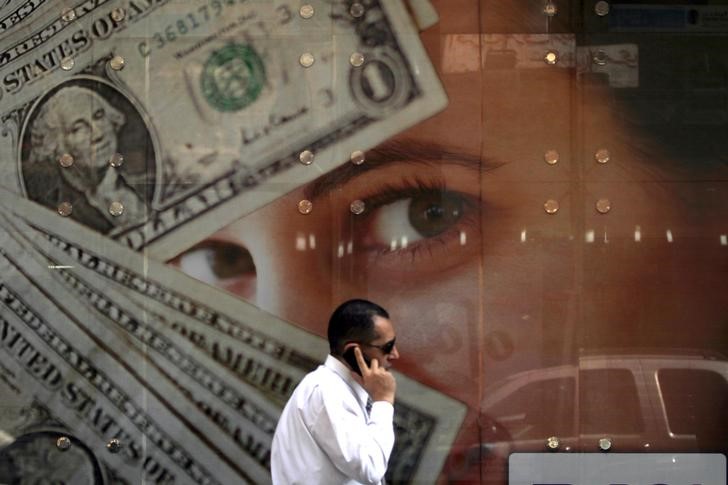Investing.com’s stocks of the week
Investing.com - The dollar pared gains against rivals Friday, weighed down a bevy of mostly underwhelming U.S. economic data.
The U.S. dollar index, which measures the greenback against a trade-weighted basket of six major currencies, rose by 0.13% to 94.73.
The Chicago purchasing manager's index (PMI) fell to a reading of 60.4 in September from 63.6 the prior month.
The Federal Reserve's preferred inflation measure, the personal consumption expenditures (PCE) price index excluding food and energy, was flat in August from July, remaining at the Fed's 2% target in annual terms.
The data validated Fed Chairman Jerome Powell's remarks earlier this week when he claimed there was little chance that inflation would "surprise to the upside," which would push the bank to adopt a more hawkish stance on monetary policy.
"Core inflation pressures seem to have crested at the Fed's 2% target the last several months backing up Fed Chair Powell's contention that inflation was unlikely to pose a problem in the future," Bank of Tokyo Mitsubishi said.
The greenback's retreat from session highs was limited, however, by weakness in the euro as Italian concerns came to the fore. Italy's populist government late Thursday showed little regard to tackling the country's debt burden, setting next year's budget at 2.4% of GDP, above what many had expected, risking backlash from EU policymakers.
EUR/USD fell 0.27% to $1.1610.
The key risk here is that further negotiations with the Commission could result in Italy being requested to go down the austerity route, Nomura said.
"This could prompt a Euroskeptic response from the government," it added.
Sterling was also on the back foot against the dollar, falling 0.31% to $1.3037.
Elsewhere, USD/CAD sank 0.87% to C$1.2391 as upbeat economic growth data from Canada and rising oil prices, which tends to support the loonie, weighed on the pair.
The trade-sensitive USD/JPY rose 0.20% to Y113.60.
